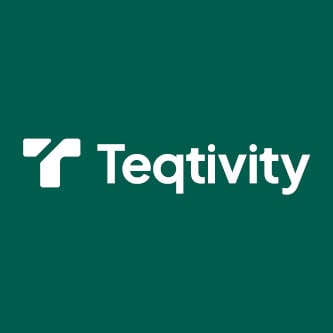Organizations today are still wrestling with a tight labor market, putting pressure on finance chiefs not only to attract new employees, but to retain talented staff. Putting in the effort to make employees valuable enough to catch the attention of other businesses can help to create a strong, loyal base of workers for your own company, said Boyd Hunter, CFO of TAB Bank.
“We don't want people to leave, but we want other people to look at TAB’s employees and say, ‘That's somebody that I need on my staff at my organization to be successful,’” Hunter said in an interview. “Because if we've done that, that means that we've developed the right type of people to make us successful.”
Creating ‘poachable’ employees
An alum of Big Four accounting firm Ernst & Young, Hunter has served as CFO of the Ogden, Utah-based bank for nearly 20 years, according to his LinkedIn profile. During his time as finance chief, Hunter has shepherded the bank as it transformed from a financial institution primarily dedicated to serving the needs of truckers into one focused on empowering financial access for underserved individuals as well as businesses.
The bank actually made an “intentional decision” approximately a decade ago to foster this culture of poachable talent, which meant allocating resources for employee training as well as creating a space where they could gain the needed experience.
To “deliberately choose to make your employees valuable enough that other companies want to poach them is an exhilarating and scary thought,” Hunter admitted, but putting in the effort means the bank is putting in the effort to create its own successful employee base.
“If nobody is looking at our employees wanting to poach them, we're doing something wrong,” Hunter said.
At a time when finance chiefs especially are dealing with a crisis of talent — 84% stated they have a significant shortage of talent in accounting and finance, CFO Dive previously reported — developing “poachable” employees can help to create a sense of loyalty that can provide key benefits to the bank even when talent departs.
If employees do wind up leaving for another company where they are happy and successful, “we want them to have left us with a good enough taste in their mouth that they're coming back and saying, ‘how can we partner?’” Hunter said. “’What are the opportunities that we can do business together?’”
Hunter described instances where past employees have tapped TAB for a potential partnership or syndication after they left the bank, which is beneficial “because now we're expanding our network, organically,” he said. On the other side, the bank has also had employees leave for organizations where they wound up unsatisfied and have returned to TAB as successful “boomerang employees,” he said.
Furthermore, just being open to conversations about potential career moves, including those to other companies, can help to create a strong employee pool at the organization — having an open discussion about a new opportunity could potentially lead to an employee wanting to make such a move, but it could also lead to employees realizing they are happy with their current position.
Either way, “you end up with a good relationship with a former employee, or a better relationship with an employee that decided to stay,” Hunter said.
Setting aside the ego
When it comes to having those types of conversations or creating hiring strategy, the CFO certainly has a role to play. During the early years of his tenure at TAB, Hunter was more involved in such decisions, but as the bank has expanded, his day-to-day involvement has waned.
“I don't know that having the CFO be the one that makes the decisions about people you're bringing on is always in direct alignment with people strategy,” he said. Having a head of HR take the lead in this area and then having an executive team that takes accountability and ownership of their own areas can prove more beneficial than having a “numbers guy” make the final decisions when it comes to staff, he said.
However, Hunter is still involved in driving the bank’s strategy around its people — the executive team talked about what needs to be done in order to ensure skilled talent is working at the organization, the company’s path to growth, as well as how does the bank’s compensation reflect its overall mission and how TAB can “incent people to keep up with what the goals of the company are,” Hunter said.
“I still end up being very involved in all of those decisions, but instead of being the one that’s driving it, I’m an influencer to it now,” he said.
For some organizations, HR is sliding into a CFO’s remit, as the finance chief begins to take on additional responsibilities. Ensuring that executives are playing to their strengths is critical for spaces such as hiring, which is why such responsibilities can vary from company to company, Hunter said.
“One of the things that I think is really important for an exec team is to set aside ego and say, ‘What's the most important thing for the success of the organization?’” Hunter said. “And if there are strategic focuses in an organization, making sure that your people are aligned with those strategic focuses.”





















